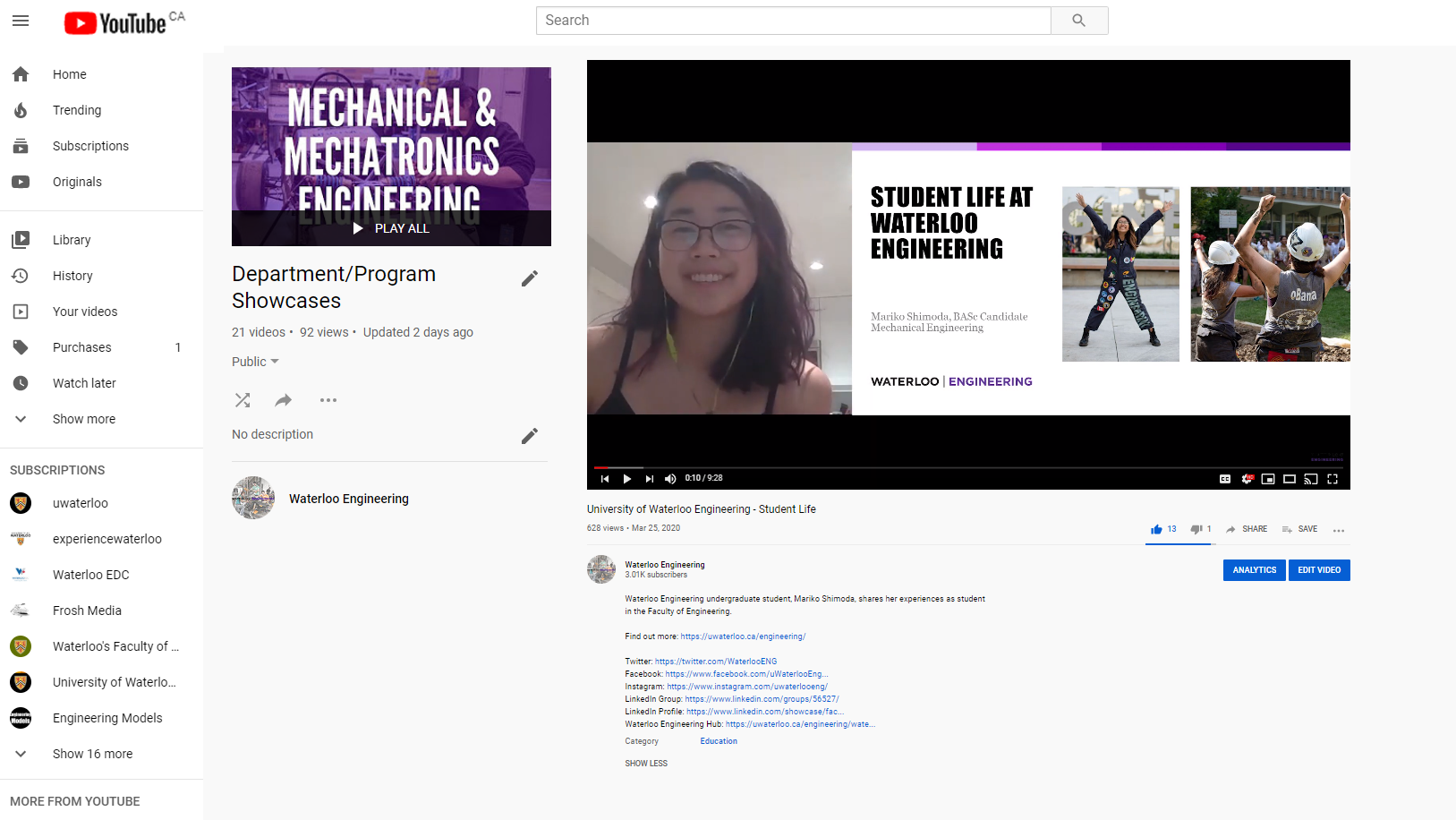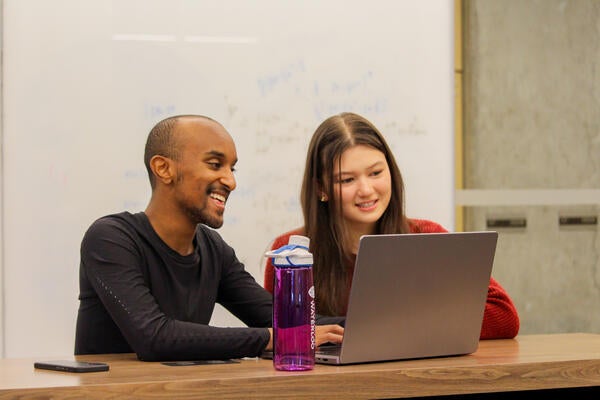
Open house experience brought to life online
Engineering staff, professors and alumni collaborate to produce videos highlighting undergraduate programs and student life

Engineering staff, professors and alumni collaborate to produce videos highlighting undergraduate programs and student life
By Brian Caldwell Facuty of EngineeringA quick pivot and a string of long days allowed Waterloo Engineering to connect with prospective students even as the coronavirus crisis picked up steam last month.
Instead of welcoming applicants and their families to the usual campus-wide open house during the March break - one of countless events cancelled as strict social distancing measures took effect - staff were able to send out more than 12,000 personalized emails with links to online videos.
Recorded via computer over the course of two 12-hours days, the videos captured presentations on each of the Faculty’s 15 undergraduate programs, as well as subjects such as what students can expect from campus life and their co-op work terms.
“Our goal was to give prospective students an experience as close as possible to the live presentations they would have seen at March Break Open House,” said Daniella Cross who spearheaded the effort with her team.
 The Student Life at Waterloo Engineering video is one of the 26 quickly produced to replace the Faculty's onsite March Break Open House.
The Student Life at Waterloo Engineering video is one of the 26 quickly produced to replace the Faculty's onsite March Break Open House.
Planning for backup videos began even before the March 21 open house - a key event on the recruitment calendar every year - had been formally cancelled to help prevent the spread of COVID-19.
When it was made official, Cross and colleagues Erica Clement-Goudy and Ryan Pyear, together with Engineering’s digital media agency partner Angle Media, organized professors, students and staff to remotely record presentations they would have shared in-person with more than 3,000 visitors at the open house.
“People at this University are so passionate about our students that they were totally committed to it,” said Cross, associate director of marketing and recruitment. “They went all out because they knew how important this information was to prospective students.”
One presenter, lecturer Andrea Atkins of architectural engineering, recorded her video only to find that the sound quality on her laptop wasn’t up to snuff.
Her husband, a sound technician, then stepped in to fashion a makeshift studio in their living room and Atkins is now using it to deliver online lectures following the suspension of in-person classes.
"This quick pivot to an online experience is an example of the kind of innovation and can-do spirit we pride ourselves on at Waterloo Engineering,” said Rick Culham, interim dean of Waterloo Engineering. “By putting the needs of prospective students first, we found a way of using technology to get them valuable information even in these difficult times."
The recruitment videos range from about five to 30 minutes.
Cross said it wouldn’t have been possible to produce them so quickly without a close working relationship with Angle Media, a digital production company co-founded by Waterloo Engineering alumni Athena D’Amato, PhD, (MBET '08) and Jordan Monaghan (MBET '07).
“They lived the student experience here and they’re passionate about what it means to be graduates,” she said, “so they really wanted to help us make this happen.”
In addition to videos on engineering programs, student life and co-op, the emails sent to all applicants included links to a new virtual tour video of engineering buildings.
Plans are now in the works, in conjunction with the University’s central marketing and undergraduate recruitment department, for faculty-wide videos and a series of online webinars in April and May for students who have received admission offers.

Read more
How Doug Kavanagh’s software engineering degree laid the foundation for a thriving career in patient care

Read more
Redefining capstone learning by bringing students, faculty and community partners together to tackle real-world challenges

Read more
Waterloo student launches Colare through co-op and entrepreneurship programs to reimagine recruitment for engineers
The University of Waterloo acknowledges that much of our work takes place on the traditional territory of the Neutral, Anishinaabeg, and Haudenosaunee peoples. Our main campus is situated on the Haldimand Tract, the land granted to the Six Nations that includes six miles on each side of the Grand River. Our active work toward reconciliation takes place across our campuses through research, learning, teaching, and community building, and is co-ordinated within the Office of Indigenous Relations.